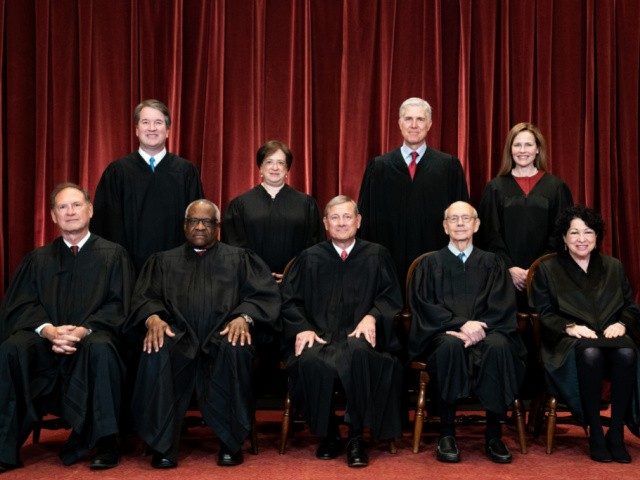The Supreme Court of the United States (SCOTUS) on Thursday overturned a lower court ruling regarding the application of the Armed Career Criminal Act (ACCA) to a felon who illegally possessed a gun but did not use it against another individual.
The ACCA mandates a 15-year minimum sentence for persons found guilty of illegally possessing a firearm who have three or more prior convictions for a “violent felony.”
Charles Borden, Jr., a felon, admitted to possessing the firearm and the government sought the 15-year enhanced ACCA sentence, but Borden argued that his possession did not cross the threshold of “the use of force ‘against the person of another.’”
A District Court rejected Borden’s argument, ruling him to be a “career criminal” and giving him the 15-year enhanced sentence. The United States Court of Appeals for the Sixth Circuit upheld the District Court ruling.
However, on June 10, 2021, SCOTUS ruled 5-4 that mere felon-in-possession, even if “reckless,” is not sufficient to trigger the ACCA’s enhanced sentencing.
Justices Elena Kagan, Stephen Breyer, Sonia Sotomayor, and Neil Gorsuch based their decision on overturning the 6th Circuit ruling on the ACCA’s phrase “against another.”
They noted, “The phrase ‘against another,’ when modifying a volitional action like the ‘use of force,’ demands that the perpetrator direct his force at another individual. Reckless conduct is not aimed in that prescribed manner.”
Justice Clarence Thomas, the fifth Justice ruling against the 6th Circuit in the 5-4 decision, concluded, “[The] ACCA’s elements clause does not encompass Borden’s conviction for reckless aggravated assault for the reasons stated in his dissenting opinion in Voisine… A crime that can be committed through mere recklessness does not have as an element the ‘use of physical force’ because that phrase ‘has a well-understood meaning applying only to intentional acts designed to cause harm.’”
Justice Brett Kavanaugh dissented against the Majority Opinion, contending that “the text of ACCA’s use-of-force clause encompasses reckless offenses, such as reckless assault and reckless homicide.”
He also noted, “Contrary to the plurality’s conclusion today, the phrase ‘against the person of another’ reflects a centuries-old term of art for classifying crimes and has zero to do with mens rea.”
Kavanaugh also observed:
Today’s decision will have significant real-world consequences. After all, as the U.S. Sentencing Commission recently reported, there is a very high rate of violent crime recidivism for ACCA defendants released from federal prison. According to that Sentencing Commission report, 59% of ACCA defendants released between 2009 and 2011 were re-arrested within eight years of their release from federal prison.
The case is Borden v. United States, No. 19-5410, in the Supreme Court of the United States.
AWR Hawkins is an award-winning Second Amendment columnist for Breitbart News and the writer/curator of Down Range with AWR Hawkins, a weekly newsletter focused on all things Second Amendment, also for Breitbart News. He is the political analyst for Armed American Radio. Follow him on Twitter: @AWRHawkins. Reach him at awrhawkins@breitbart.com. You can sign up to get Down Range at breitbart.com/downrange.

COMMENTS
Please let us know if you're having issues with commenting.